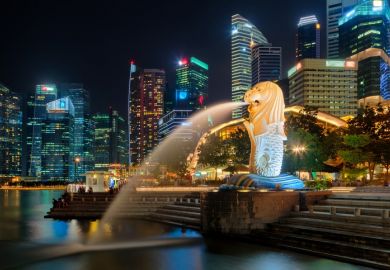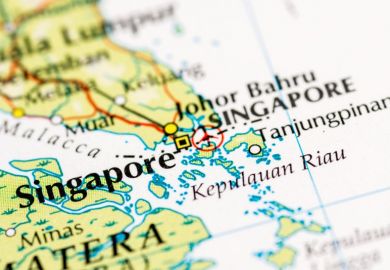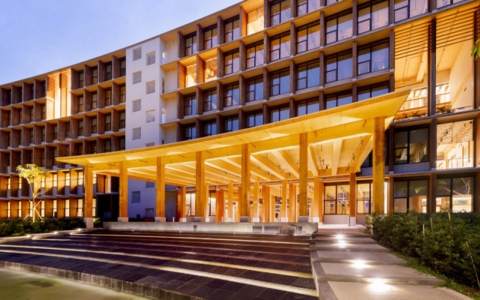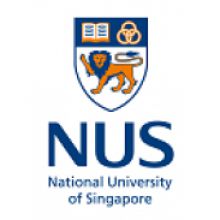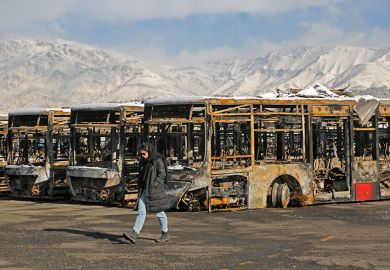Academics fear that the removal of an online article that included critical comments about the country’s two leading universities following a legal challenge will have a chilling effect on freedom of expression.
The story, “Opaque policies, fixation with KPIs, rankings: why arts and humanities academics quit NUS, NTU”, which was published by the online newspaper Today, included interviews with several academics who had left or were planning to leave the National University of Singapore and Nanyang Technological University, Singapore.
According to the article, scholars claimed that the universities failed to retain talented academics because of their “incessant pursuit of rankings and the relative lack of academic freedom when it comes to certain projects or research initiatives”.
A spokeswoman for MediaCorp, which owns Today, said that “the article was taken down as it is the subject of a legal challenge. Our lawyers are looking into the matter.”
An NUS spokeswoman confirmed that the university was “seeking legal advice”, complaining that the article “fell significantly short of our expectations” and “did not adequately represent NUS’ position on the matter”.
Linda Lim, a Singaporean emeritus professor at the Stephen M. Ross School of Business at the University of Michigan, who was quoted in the Today article, said that Singapore “already bears the stigma of a perceived lack of academic and media freedom” and the legal challenge “will only have a further chilling effect and discourage academics from working there”.
“It runs counter to the deep culture of intellectual freedom that underlies the excellence of the very ‘highly ranked’ US research universities to whose status NUS and NTU aspire,” she said.
Axel Gelfert, professor of philosophy at the Technical University of Berlin, who left NUS in 2017, was also quoted in the article. He told Times Higher Education that the legal action from NUS “cast a very bad light indeed on the institution and its senior leadership”.
“Robust critical debate, including in public, is the lifeblood of higher education and should not exclude critical (self-)reflection on the state of academic institutions,” he said. “Turning to legal action, instead of engaging with the constructive aspects of the criticism offered, demonstrates ignorance of these principles and will almost certainly have a – perhaps intended – chilling effect.”
However, Cherian George, a Singaporean professor of media studies at Hong Kong Baptist University, said that the incident “won’t lessen Singapore-based academics’ public criticism of university governance” because “you can’t chill speech that’s already frigid”.
“The article in the Today newspaper was surprisingly critical by Singaporean standards, even if universities more accustomed to the robust debate of open societies wouldn’t have lost sleep over it,” he said.
“The situation will now return to the status quo ante, where the debate about the Singapore model is conducted outside Singapore’s borders.”
The NUS spokeswoman said that the university “upholds the principles of academic freedom and open enquiry” but “wishes that any article about us published in our mainstream media should be impartial and factually accurate, so that the public can come to its own conclusions in a fair and objective manner”.
“NUS fulfils our public mission through teaching and research excellence. Ranking [position] is not a driver of change at NUS,” the spokeswoman added.
POSTSCRIPT:
Print headline: Scholars fear for freedoms after article removed
Register to continue
Why register?
- Registration is free and only takes a moment
- Once registered, you can read 3 articles a month
- Sign up for our newsletter
Subscribe
Or subscribe for unlimited access to:
- Unlimited access to news, views, insights & reviews
- Digital editions
- Digital access to THE’s university and college rankings analysis
Already registered or a current subscriber?

